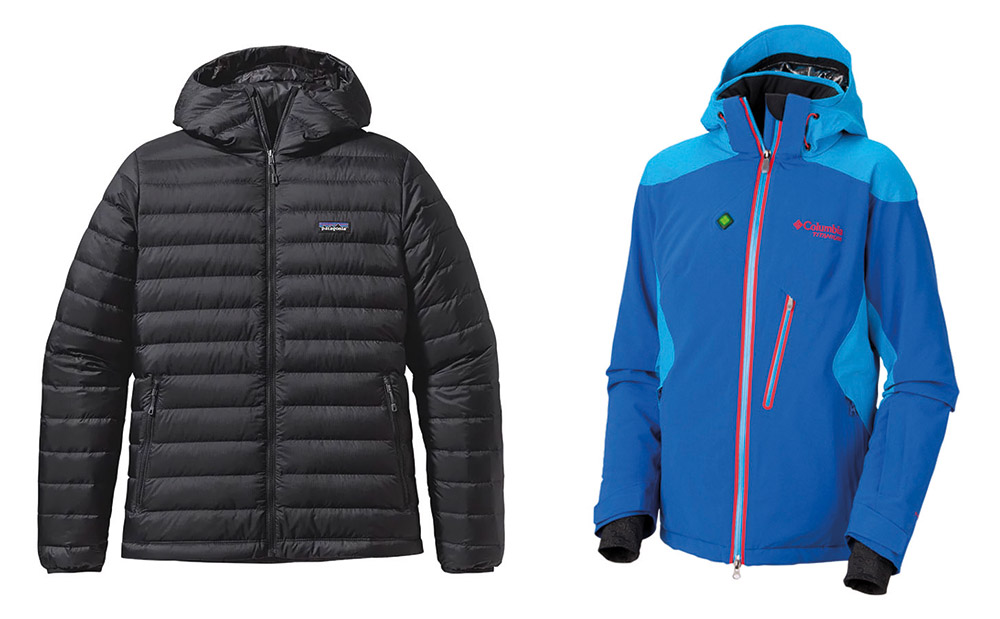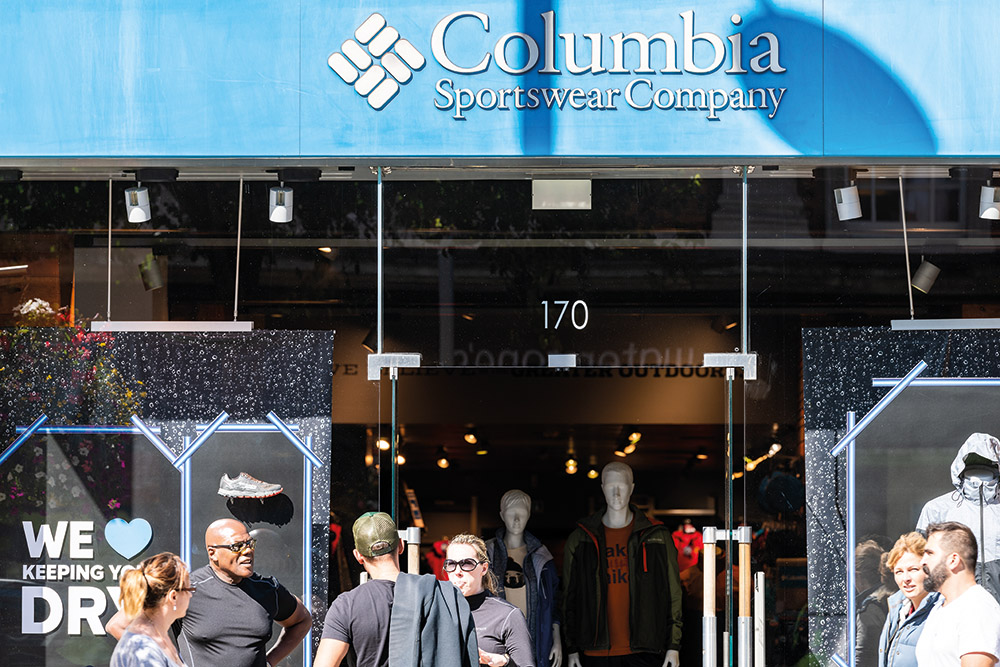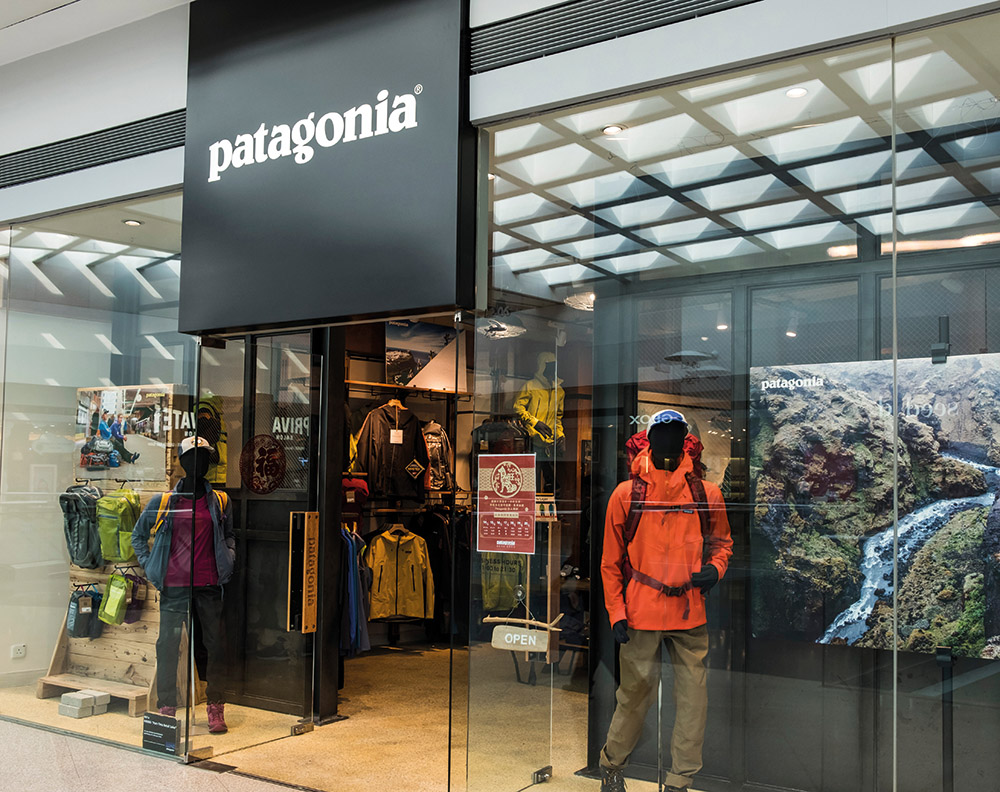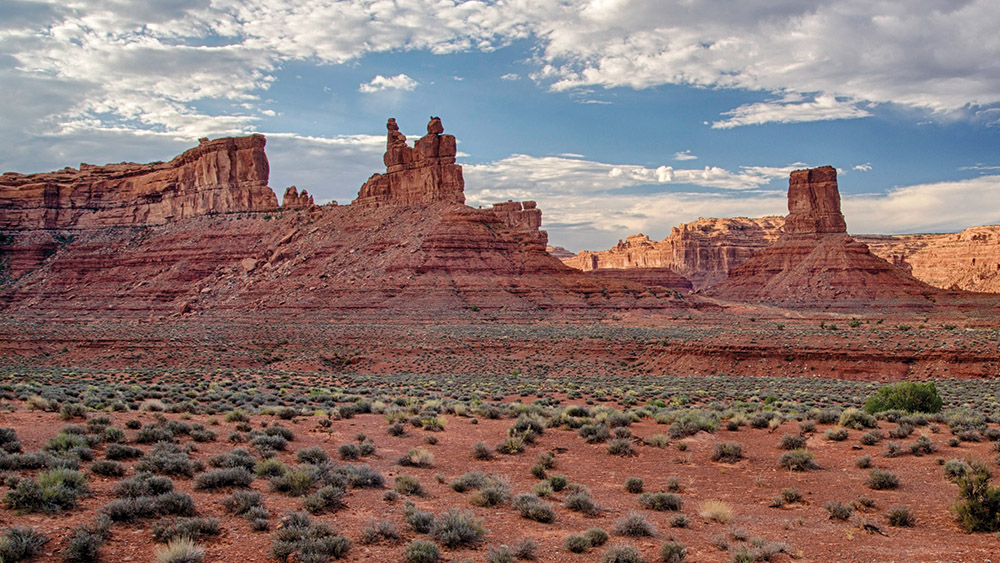ETHICAL fashion may be a buzzword now, but some clothing brands have been riding the sustainability wave longer than others. And naturally, outdoor apparel brands are at the vanguard of sustainable style.
Dominating the outdoor clothing market, and shining as examples of good corporate citizenship, are two companies: Patagonia and Columbia. Each has an ethos rooted in a genuine love of the wilderness, and each strives to honour the landscapes that inspire them.

The Patagonia company began in 1973 with founder Yvon Chouinard’s passion for rock climbing. Chouinard created his own climbing gear during the snow seasons and sold it from the back of his car the rest of the year as he roamed California in search of big walls to scale. From those free-spirited, hands-on beginnings, Chouinard has built a multi-billion-dollar empire — one that he and current CEO Rose Marcario wield like a weapon in the fight for the planet. “At Patagonia, we appreciate that all life on Earth is under threat of extinction,” reads the mission statement. “We aim to use the resources we have — our business, our investments, our voice and our imaginations — to do something about it.”

Columbia Sportswear Company is a family business stemming from a similar love of the great outdoors — and hats: it was founded in Portland, Oregon, in 1938 as a millinery. The US Pacific Northwest, home of Columbia headquarters, is a region of dense forests and towering mountains, rugged coasts and wide-open spaces — a perfect playground for the family, and a testing ground for the products.
Columbia chair Gert Boyle — whose parents started the original hat-making business — is known for her “Tough Mother” persona thanks to Columbia’s long-running “Tested Tough” campaign. In 1970, Boyle went from housewife to executive after the sudden passing of her husband — and company president — Neal. With Gert Boyle at the helm, Columbia became one of the leading outdoor apparel and equipment manufacturers in the world. Last year, Columbia sales topped $2bn, a 13% increase from 2017. The Boyle family continues to carry the company torch, with son Tim serving as the company’s CEO, and grandson Joe as president.
Both companies recognise that urgent action is needed — now, and at a global level. Their opposition to intentional obsolescence — a practice designed to fuel spending — drove them to create long-lasting quality apparel, and to take responsibility for the full life-cycle of their products. “It’s perfect. Now make it better,” is the oft-quoted mantra of Columbia matriarch Boyle, and those exacting standards of excellence and innovation still drive the company. Durability and functionality are trademarks of the Columbia brand, whose products are put through the ultimate test in the majestic and challenging landscape of America’s north-western states.
The Environmental Protection Agency says more than 80 percent of textiles in the US end up in landfills — something Patagonia and Columbia are eager to prevent. The products are built to last, and the occasional rip or tear is not necessarily the end of a well-used favourite. Patagonia has a WornWear campaign that encourages consumers to repair damaged goods rather than tossing them. Don’t know how to mend a sock? There’s a tutorial on the website. Feeling domestically disinclined? Good news: you can drop it off at a Patagonia repair location, or catch its mobile unit of thimble-thumbed heroes at a scheduled event. Customers looking for quality clothing at bargain prices can trawl the WornWear site for second-hand treasures, and yes, trade-ins are welcome via retail locations, website, or affiliate sites WornWear and Patagonia Provisions.

Columbia, predictably, is on the same page. It launched its own ReThreads programme across its US retail network to give new life to old clothing — and contribute towards a closed-loop ecosystem of recycle and reuse. The programme partners with a textile recycling solutions provider, I:CO (I:Collect). The German-based company provides clothing retailers worldwide with collection bins for used clothing and footwear, which it then sorts and processes to resell on second-hand markets or recycle as raw materials.
Columbia undergoes regular assessments of its environmental management practices – as do the companies in its supply chain. Factories supplying Columbia can expect unannounced visits from corporate responsibility specialists, and any issues identified as problematic are swiftly and collaboratively dealt with. Columbia supports its suppliers with training and capacity building programmes to ensure sustainable factory management systems, production efficiency, and safety standards.
At Patagonia, protection and preservation of the environment is no after-hours fancy; it’s the impetus for operations, and the focus of each day’s work. The company honours its own admirable set of governance rules, and once again, the supply chain is considered as part of the process. Each link features high standards of transparency and accountability, fair-trade regulations, safe working conditions and decent wages. Raw materials are responsibly sourced and processed into garments designed to last a lifetime — or even generations. Patagonia has earned its reputation as a trusted ally for alpine adventurers.
Since 1985, Patagonia has donated one percent of its annual sales to grassroots organisations around the world — a $90m boost for programmes that preserve and restore the planet. In 2002, Chouinard partnered with Craig Mathews, founder of angling supplies company Blue Ribbon Flies, to launch “1% For The Planet”. This alliance of businesses brings donors and doers together, pairing non-profit gumption with corporate philanthropy to aid the environment.
Patagonia prides itself on being an activist company, unashamedly mixing its corporate identity with politics. It has endorsed political candidates with strong environmental stances — and they’ve won. Patagonia is currently suing US President Donald Trump for his plan to scale-back the wilderness area of Bears Ears National Monument in Utah.

Trump’s corporate-friendly tax cuts unlocked around $10m in unexpected profits for Patagonia — all of which it plans to donate to its environmental cause. Patagonia has been lauded as a gold standard of responsible corporate citizenry and impactful activism. Its latest endeavour, Tin Shed Ventures, has backed environmentally responsible start-ups with $75m in capital.
Columbia’s corporate citizenry is evidenced by its community outreach programmes and non-profit partnerships. The company’s HERproject empowers women working in its supply chain through educational sessions on health, financial literacy, and gender equality. The programme has reached more than 30,000 women in its 10 years of operation. Columbia encourages volunteerism among its employees, allowing two leave days on full pay for volunteer work each year, and matching employees’ community investments — at up to $1,000 annually per person. Columbia employees logged over 3,000 hours of volunteer work in 2017, and more than $2m was invested in 500 non-profit organisations worldwide.
Patagonia and Columbia may be market rivals, but they are comrades in combat for environmental protection and social justice.




























